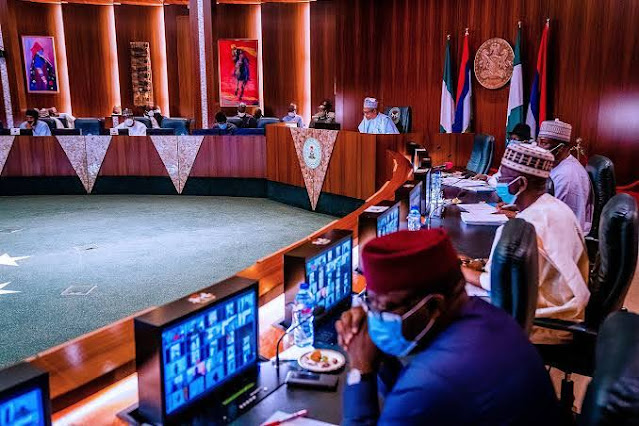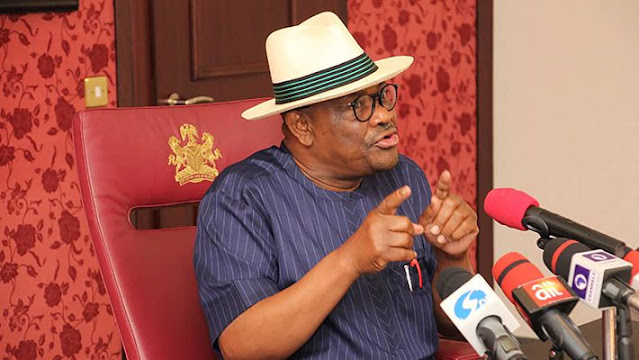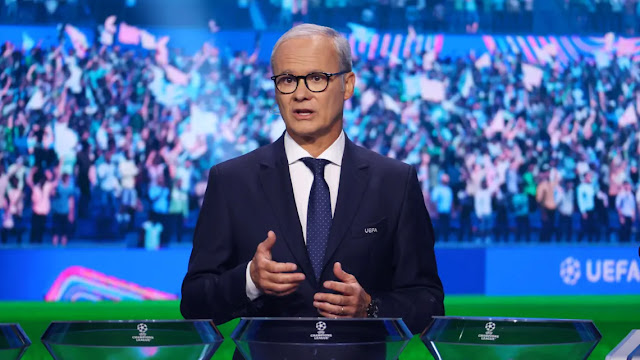In a landmark decision aimed at transforming Nigeria’s economic landscape, the National Economic Council (NEC) has officially endorsed the framework for the Renewed Hope Development Plan (2026–2030), a strategic initiative designed to consolidate ongoing reforms and propel Nigeria toward its ambitious goal of achieving a one trillion-dollar economy by 2030. The decision was announced following the council’s 151st meeting, held at the Presidential Villa in Abuja on Thursday, August 28, 2025, under the chairmanship of Vice-President Kashim Shettima. This endorsement marks a pivotal moment in Nigeria’s development journey, signaling a renewed commitment to inclusive growth, policy continuity, and participatory planning.
The NEC, a critical advisory body comprising the Vice-President, state governors, key ministers, and other stakeholders, commended the Ministry of Budget and Economic Planning for spearheading the development of the framework. The council urged all states, local governments, and relevant stakeholders to actively participate in the plan’s implementation to ensure inclusivity and accelerate Nigeria’s economic growth. The Renewed Hope Development Plan is poised to serve as a bridge between the lessons of past economic policies and the nation’s aspirations for a prosperous future, aligning medium-term strategies with the long-term objectives outlined in Nigeria Agenda 2050.
Vice-President Shettima, in his remarks during the meeting, emphasized the plan’s role as a cornerstone of the administration’s economic vision. He described it as a “critical bridge between past lessons and future ambitions,” highlighting its focus on consolidating existing reforms, deepening policy continuity, and providing a practical roadmap for achieving a one trillion-dollar economy. The plan’s participatory approach, which involves multiple tiers of government, civil society, the private sector, and traditional institutions, represents a significant departure from traditional top-down planning models. Additionally, Shettima announced a complementary initiative by the National Agency for Science and Engineering Infrastructure (NASENI) to scale up local production of solar-powered irrigation pumps, a move aimed at reducing energy costs for farmers and bolstering national food security through expanded dry-season cultivation.
This article explores the details of the NEC’s endorsement, the components and significance of the Renewed Hope Development Plan, the broader context of Nigeria’s economic ambitions, and the implications of this decision for the nation’s future.
The NEC Meeting and the Endorsement of the Renewed Hope Development Plan
The 151st meeting of the National Economic Council, held at the Presidential Villa in Abuja, was a high-profile gathering that brought together key stakeholders in Nigeria’s governance and economic planning. Chaired by Vice-President Kashim Shettima, the meeting provided a platform for deliberating on critical national issues, with the endorsement of the Renewed Hope Development Plan (2026–2030) emerging as a central focus. The plan, developed under the leadership of the Ministry of Budget and Economic Planning, was lauded for its comprehensive approach to addressing Nigeria’s economic challenges while building on existing reforms.
The NEC’s endorsement signifies a collective commitment to the plan’s objectives, which include fostering sustainable economic growth, reducing poverty, and positioning Nigeria as a leading economic power in Africa. The council’s call for active participation from all states and stakeholders underscores the importance of inclusivity in the plan’s implementation. By involving subnational governments, civil society organizations, private sector actors, and traditional institutions, the plan aims to create a sense of shared ownership and ensure that its benefits reach all segments of Nigerian society.
Vice-President Shettima’s remarks during the meeting highlighted the plan’s role in consolidating the reforms initiated under the administration of President Bola Ahmed Tinubu. Since assuming office in 2023, the Tinubu administration has pursued a series of economic reforms, including the removal of fuel subsidies, the unification of exchange rates, and efforts to diversify the economy away from oil dependency. These reforms, while controversial in some quarters due to their immediate socioeconomic impacts, are seen as critical steps toward long-term economic stability and growth. The Renewed Hope Development Plan builds on these efforts, providing a structured framework for achieving the administration’s vision of a one trillion-dollar economy by 2030.
The Renewed Hope Development Plan: Key Features and Objectives
The Renewed Hope Development Plan (2026–2030) is a medium-term strategy designed to align with the long-term goals of Nigeria Agenda 2050, a comprehensive blueprint for transforming Nigeria into a global economic powerhouse by mid-century. Nigeria Agenda 2050 envisions a nation with a diversified economy, high levels of human development, and robust infrastructure, capable of competing with leading economies worldwide. The Renewed Hope Development Plan serves as a critical stepping stone toward these ambitions, focusing on key areas such as economic diversification, infrastructure development, human capital development, and inclusive growth.
One of the plan’s defining features is its participatory approach, which seeks to involve stakeholders at all levels of society. Unlike previous development plans that were often criticized for their top-down approach, the Renewed Hope Development Plan emphasizes collaboration between federal, state, and local governments, as well as partnerships with the private sector, civil society, and traditional institutions. This inclusive model is intended to ensure that the plan reflects the diverse needs and aspirations of Nigeria’s population, which exceeds 200 million people.
The plan also prioritizes policy continuity, building on the successes and lessons of previous initiatives, such as the Economic Recovery and Growth Plan (ERGP) of 2017–2020 and the National Development Plan (2021–2025). By consolidating these reforms, the Renewed Hope Development Plan aims to create a stable policy environment that fosters investor confidence and supports sustainable growth. Key sectors targeted for development include agriculture, manufacturing, technology, renewable energy, and infrastructure, all of which are seen as critical drivers of a one trillion-dollar economy.
Vice-President Shettima emphasized that the plan is not merely a theoretical document but a practical roadmap for achieving tangible outcomes. To this end, the NEC has directed that preparations for the plan’s implementation begin in September 2025, ensuring alignment with the 2026 annual budget. This timeline underscores the urgency of translating the plan’s objectives into actionable programs that deliver measurable results for Nigerians.
The One Trillion-Dollar Economy Ambition
The goal of achieving a one trillion-dollar economy by 2030 is a bold and ambitious target that reflects the Tinubu administration’s determination to elevate Nigeria’s global economic standing. Nigeria, Africa’s most populous nation and one of its largest economies, has long grappled with challenges such as oil dependency, infrastructural deficits, and socioeconomic inequalities. Despite its vast natural resources and human capital, the country’s GDP, estimated at approximately $477 billion in 2022, remains below its potential.
Achieving a one trillion-dollar economy would require Nigeria to more than double its GDP within a decade, a feat that demands sustained economic growth, significant foreign and domestic investment, and structural reforms. The Renewed Hope Development Plan identifies several strategies for reaching this goal, including:
Economic Diversification: Reducing Nigeria’s reliance on oil exports by promoting growth in non-oil sectors such as agriculture, manufacturing, and technology. The plan emphasizes value addition in agriculture, leveraging Nigeria’s vast arable land to boost food production and agro-processing.
Infrastructure Development: Addressing Nigeria’s infrastructural deficits, particularly in power, transportation, and digital connectivity. Investments in renewable energy, such as solar-powered irrigation pumps, are a key component of this strategy.
Human Capital Development: Enhancing education, healthcare, and skills training to create a competitive workforce capable of driving innovation and productivity.
Private Sector Engagement: Creating an enabling environment for businesses through regulatory reforms, tax incentives, and public-private partnerships.
Inclusive Growth: Ensuring that economic growth benefits all segments of society, particularly marginalized groups such as women, youth, and rural communities.
The announcement of NASENI’s initiative to scale up local production of solar-powered irrigation pumps is a practical example of how the plan’s objectives are being operationalized. By reducing energy costs for farmers and enabling year-round cultivation, this initiative supports agricultural productivity and food security, two critical pillars of economic diversification and inclusive growth.
The Role of NASENI and Food Security
The National Agency for Science and Engineering Infrastructure (NASENI) plays a pivotal role in Nigeria’s quest for technological advancement and economic self-reliance. Established to promote the development and commercialization of indigenous technology, NASENI’s efforts to scale up the production of solar-powered irrigation pumps align with the Renewed Hope Development Plan’s focus on innovation and sustainability.
Agriculture remains a cornerstone of Nigeria’s economy, employing over 35% of the workforce and contributing significantly to GDP. However, challenges such as unreliable rainfall, high energy costs, and limited access to modern farming equipment have hindered productivity, particularly during the dry season. The introduction of solar-powered irrigation pumps addresses these challenges by providing a cost-effective and environmentally friendly solution for farmers. By enabling year-round farming, the initiative is expected to boost crop yields, reduce food imports, and enhance food security—a critical priority given Nigeria’s growing population and rising food inflation.
Vice-President Shettima’s announcement of this initiative during the NEC meeting underscores the government’s commitment to integrating technology into its development agenda. The use of solar energy also aligns with global trends toward renewable energy adoption, positioning Nigeria as a leader in sustainable development in Africa.
Challenges and Opportunities
While the Renewed Hope Development Plan holds immense promise, its success will depend on overcoming several challenges. Nigeria’s history of development planning is littered with examples of ambitious initiatives that failed to deliver due to poor implementation, corruption, and lack of coordination between federal and state governments. The NEC’s emphasis on inclusivity and stakeholder engagement is a positive step toward addressing these issues, but effective execution will require robust mechanisms for monitoring and evaluation.
Another challenge is the need to mobilize significant financial resources to fund the plan’s initiatives. Achieving a one trillion-dollar economy will require substantial investments in infrastructure, education, and technology, much of which will depend on attracting foreign direct investment and leveraging public-private partnerships. The government will also need to address macroeconomic challenges such as inflation, currency volatility, and debt sustainability to create a stable environment for growth.
Despite these challenges, the plan presents numerous opportunities for Nigeria to redefine its economic trajectory. The focus on economic diversification, for instance, could reduce Nigeria’s vulnerability to global oil price fluctuations, while investments in renewable energy and technology could position the country as a leader in Africa’s green economy. Moreover, the participatory approach to planning could foster greater trust and collaboration between the government and citizens, paving the way for more inclusive and sustainable development.
Public Reaction and Future Outlook
The NEC’s endorsement of the Renewed Hope Development Plan is likely to generate significant interest and debate among Nigerians, who have grown accustomed to ambitious government promises that often fall short of expectations. The emphasis on inclusivity and tangible outcomes, as articulated by Vice-President Shettima, may help build public confidence in the plan, but its success will ultimately depend on visible results in areas such as job creation, poverty reduction, and infrastructure development.
As preparations for the plan’s implementation begin in September 2025, all eyes will be on the Ministry of Budget and Economic Planning and other stakeholders to ensure that the plan is effectively integrated into the 2026 annual budget. The alignment of federal, state, and local government programs will be critical to ensuring that the plan’s benefits are felt across the country, from urban centers to rural communities.
Looking ahead, the Renewed Hope Development Plan represents a bold vision for Nigeria’s future, one that seeks to harness the country’s vast potential to achieve unprecedented economic growth. By building on past reforms, fostering inclusivity, and leveraging technology, the plan has the potential to transform Nigeria into a one trillion-dollar economy by 2030, setting the stage for a prosperous and sustainable future.
Conclusion
The National Economic Council’s endorsement of the Renewed Hope Development Plan (2026–2030) marks a significant milestone in Nigeria’s quest for economic transformation. Under the leadership of Vice-President Kashim Shettima, the NEC has set the stage for a collaborative and inclusive approach to development, one that seeks to consolidate ongoing reforms and achieve the ambitious goal of a one trillion-dollar economy. With its emphasis on policy continuity, stakeholder engagement, and tangible outcomes, the plan offers a promising roadmap for addressing Nigeria’s economic challenges and unlocking its potential.
The announcement of NASENI’s initiative to scale up solar-powered irrigation pumps further demonstrates the government’s commitment to practical solutions that enhance productivity and sustainability. As Nigeria prepares to implement the Renewed Hope Development Plan, the nation stands at a critical juncture, with the opportunity to redefine its economic future and cement its position as a global economic powerhouse.






